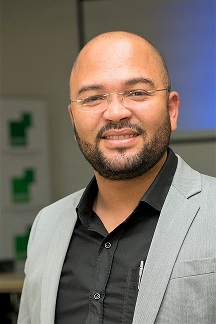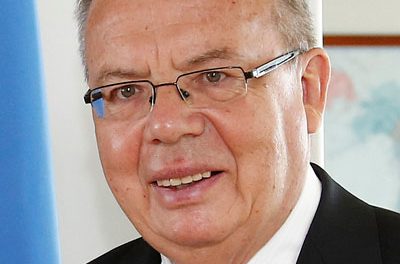
Wi-Fi is not just for surfing

By Kehad Snydewel.
The first thing we do on holiday, at a hotel, conference, airport, or anywhere other than our place of work or home is trying to connect to the wi-fi. Data is expensive and we want to stay connected with our devices.
This is not just to check Instagram, send WhatsApp or FB. We need to stay connected with our email, and the latest news and be able to have information available at the touch of a button. Tourists now demand Wi-Fi connectivity and won’t understand that they are suddenly offline just because they are on holiday. As a premier vacation destination, we need to offer this across Namibia, or people will start going elsewhere. However, it doesn’t stop there. Our work is transforming as well.
The pandemic taught us that being able to remotely connect was imperative. Without it, the world would have ground to a halt. In 2016 the UN General Assembly even passed a non-binding Resolution that “declared internet access a human right,” governments and technology companies, including our Government, have been working hard to improve the network and increase coverage across our vast and sparsely populated country. We must face reality and acknowledge data is expensive and not everyone has the privilege of accessing Wi-Fi freely. The Internet and all the services and applications that come with it have made Internet accessibility a basic commodity and service that should be accessible to everyone, much like electricity, and water.
Businesses need to start offering Wi-Fi, not as an exclusive service, it should become the norm. Coffeeshops are a prime example. People come and sit and enjoy a coffee whilst doing their work. The number of laptops opens in a coffee shop makes it seem more like an office than a café. Would all those customers still come if there was no free Wi-Fi? Probably not. This issue goes much further and deeper than offering coffee drinkers free internet access. Imagine shopping centres offering free internet access, some do, but not all in Namibia.
Being able to sit and chill while your partner tries on the 12th item of clothing will enhance the shopping experience and keep people shopping longer Stay connected with your office and emails whilst running errands. ‘Productivity on the go’ if you will.
Imagine employees, and clients always being able to connect to a safe and secure network whilst at your premises. Keeping essential information and sharing documents through the cloud-based servers whilst off-site with a client. It all starts with basic Wi-Fi accessibility which we still treat as something for the happy few in places of business and retail enterprises.
COVID-19 made us realise that working from home (WFH) was not just a ‘nice to have for a business, it was imperative and legislated by law. Knowing that your employees could connect from anywhere across the country to a secure network to do their work was only possible through wireless solutions. Doing so safely, and securely, and perhaps having hundreds of employees connect at the same time seemed impossible, businesses and Namibia’s infrastructure made it happen.
Complicated background technology like switchers, routers, and cloud-based virtual private networks opened a world of work, access to information, and play for employers and employees. Namibia truly wants to become a knowledge-based society and Windhoek is championing itself as a city of innovation, wireless connectivity is essential. It should be available for anyone with an internet-enabled device. Providing Internet accessibility will be a catalyst for change, innovation, education and stimulate the Namibian economy and positively transform how we work, live, and play. The potential to unlock innovation and transform development is limitless with freely accessible internet connectivity.











































